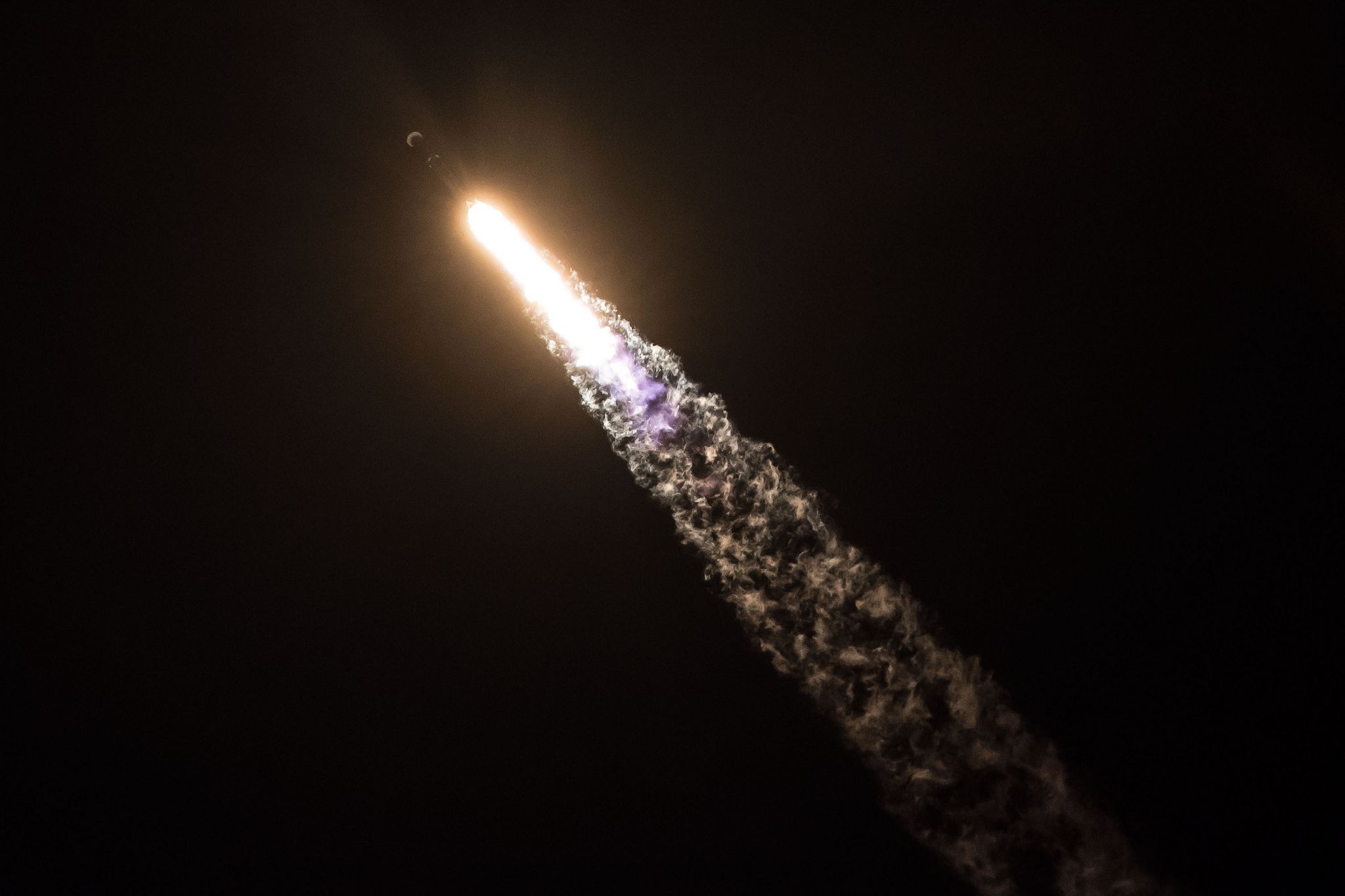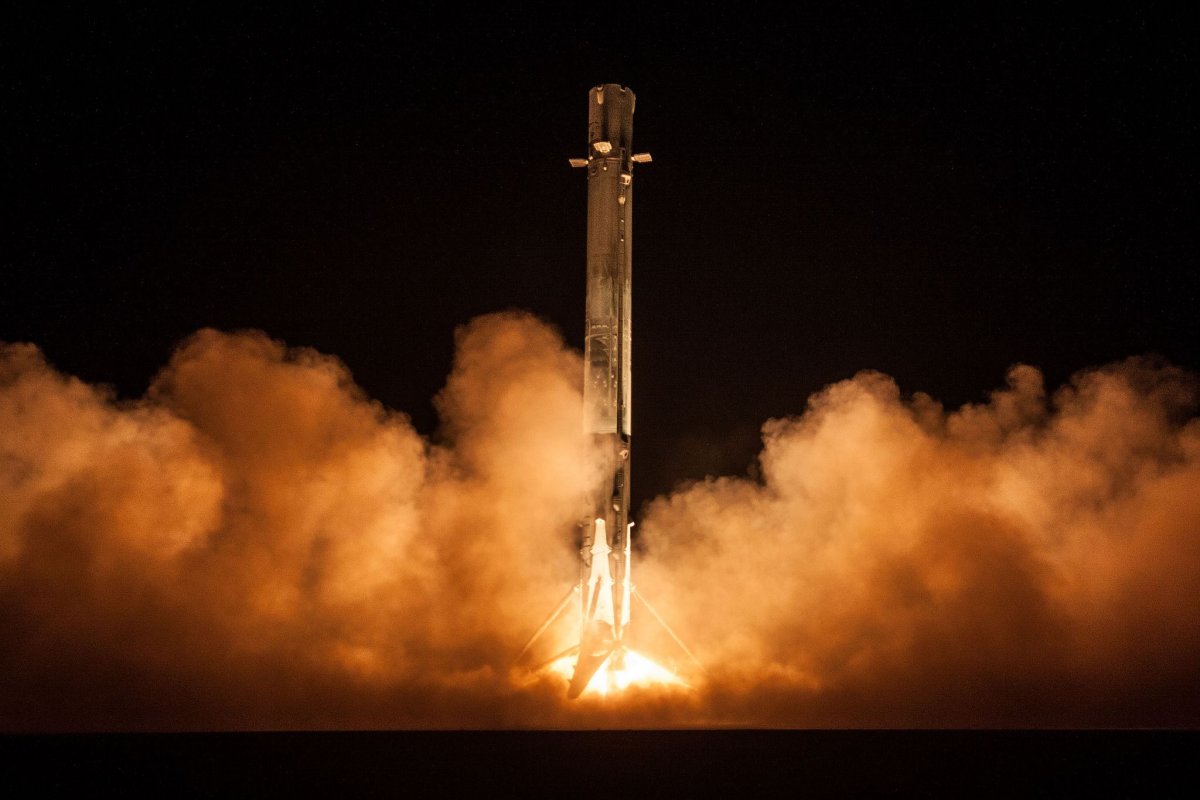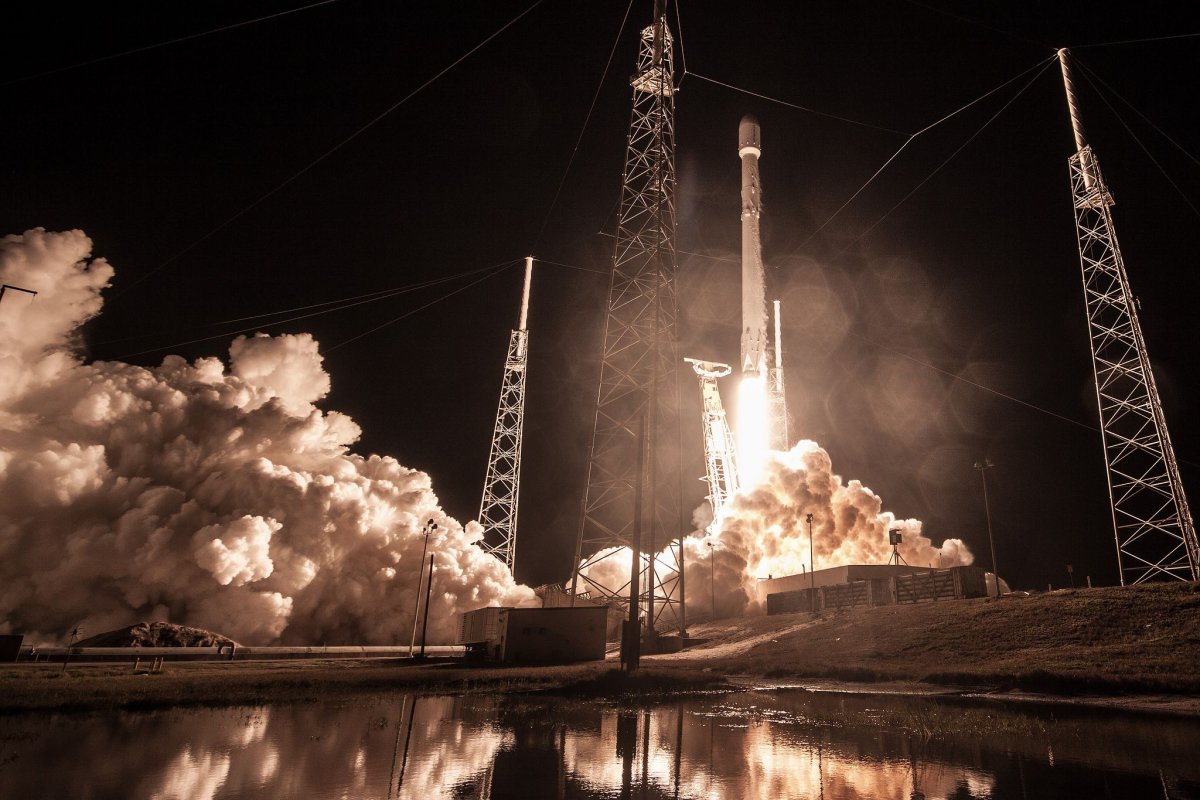
The reported failure of the U.S. Government's Zuma satellite may not be down to Elon Musk's SpaceX, experts have suggested. Instead, the fault may lie with an adapter manufactured by defense contractor Northrop Grumman.
On Sunday, SpaceX launched the classified satellite on its Falcon 9 class rocket. Cameras followed part of the mission: the launch and planned separation of stages one and two of the rocket. Stage one fell back to Earth, while stage two flew into orbit.
Or, so it seemed at the time.

Reports emerged Monday morning that something was amiss. The Wall Street Journal said congressional staffers were told the potentially multibillion-dollar launch was ultimately a failure. The newspaper referred to the event as "a total loss."
With little word from the parties involved—SpaceX, Northrop Grumman and the U.S. government—scientists began to speculate on the status of Zuma.
"We do have confidence that a satellite made at least one orbit of the Earth because it got an entry in the military satellite catalog," Jonathan McDowell, an astrophysicist at the Harvard-Smithsonian Center for Astrophysics and satellite expert, told Newsweek. "So, Zuma probably made a single orbit of the Earth and then came down again."
Space-Track has cataloged the Zuma payload as USA 280, international designation 2018-001A. Catalog number 43098.
— Jonathan McDowell (@planet4589) January 9, 2018
No orbit details given. No reentry date given, but for a secret payload it might not be. Implication is Space-Track thinks it completed at least one orbit
Rocket or satellite failure?
SpaceX representatives were quick to assert that the Falcon 9 had performed exactly as planned. President and chief operating officer Gwynne Shotwell told Gizmodo in a statement: "For clarity: after review of all data to date, Falcon 9 did everything correctly on Sunday night...If we or others find otherwise based on further review, we will report it immediately. Information published that is contrary to this statement is categorically false."
If the rocket was indeed successful, was something wrong with the satellite?

According to documents obtained by Wired last year, the satellite itself was built by Virginia-based Northrop Grumman. The company, which focuses on global security according to its website, arranged the launch on behalf of the U.S. Government.
"This is a classified program. We cannot comment on classified programs," Northrop Grumman's communications director Lon Rains wrote in an email to Newsweek.
SpaceX competitor United Launch Alliance is known to confirm the ultimate success of its classified launches. For example, ULA announced the successful launch of the secret NROL-52 satellite on behalf of the National Reconnaissance Office.
Neither SpaceX nor Northrop would comment further when contacted by Newsweek.
Scientific explanations
Sir Martin Sweeting, distinguished professor at the University of Surrey and founder of Surrey Satellite Technology, explained that a satellite like this could fail if it does not separate from the launch vehicle. If it does separate, failure could result from the motors not propelling the satellite to its intended orbit.
It is this first option that has raised flags for some observers. If the satellite failed to detach from the second stage of the Falcon 9, the pair could have come crashing back toward Earth.
"It's very normal for the second stage of the rocket to be deorbited after a couple of trips round Earth—and so that was per schedule," said McDowell. "What is not normal is that you forgot to separate the payload before you did that."
Faulty payload adapter?
The documents obtained by Wired reportedly state that the payload adapter—the interface between the rocket and the satellite—was built by Northrop Grumman.
Such outside involvement is not standard practice. "For most rockets, that interface part belongs to the rocket and is the rocket company's problem," he said. As a result, a payload separation failure would lie with the rocket company. "But this time it's not, because the customer decided to use their own payload adapter," said McDowell.
And McDowell believes that this adapter, which joins the satellite to the rocket, could have been responsible for the failure. "The story hangs together," he said. "When the second stage rocket disposed of itself, the satellite was still attached."
Sweeting agrees that this theory is "plausible." However, he could not comment on Zuma's specific failure modes.
"The whole thing was trashed over the Indian Ocean a couple of hours after launch," McDowell said. "That's what I think happened—but I can't prove it."
Searching for Zuma
There is only a small chance we will find out whether Zuma succeeded or failed unless the project is eventually declassified.
If it did fall back through the atmosphere, said Sweeting, it is unlikely any parts would survive the journey. "Unless the satellite is very heavy, then it will all burn up in the Earth's upper atmosphere," he said. "Very occasionally, very dense parts of spacecraft may reach the surface of the Earth—but this is rare."
If Zuma is still floating around in space, we may catch a glimpse of it in about a week, McDowell noted. Northern Hemisphere satellite observers could see Zuma if it stayed in its original orbit. But the chances of a sighting are slim because it may have shifted position.
"My expectation is that we won't see anything and that then, by not seeing anything, we won't be able to say very much," said McDowell.
Uncommon Knowledge
Newsweek is committed to challenging conventional wisdom and finding connections in the search for common ground.
Newsweek is committed to challenging conventional wisdom and finding connections in the search for common ground.
About the writer
Katherine Hignett is a reporter based in London. She currently covers current affairs, health and science. Prior to joining Newsweek ... Read more
To read how Newsweek uses AI as a newsroom tool, Click here.








